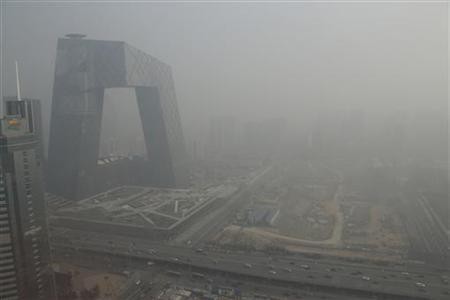Even though it ranked among the 10 most polluted Chinese cities around 2005, the Zhuzhou clear sky has re-emerged, as the black smoke that replaced the city's view of the universe above dissipated.
Over the last four years, the closure of 213 polluting factories; the cessation of cement, steel and chemical production lines; and the razing of over 450 chimneystacks have led to a process of renewal in the Hunan provincial city.
The mayor of Zhuzhou spoke with the media on Monday, explaining:
"Policymakers once idolized tall chimneys. The more chimneys, the better. This mindset has now changed. Our mindset has shifted from chimney worship to chimney phobia."
The city, like many others across the nation, was one of the cogs in the powerful engine that has been China's economy, which has relied upon investment and exports to fuel its rapid growth since the mid-1980s. However, Beijing did not pay enough attention to environmental concerns. As a consequence, the conservationist process that Zhuzhou has recently undergone is being replicated in many other cities of China.
The city is not in danger of stagnation, by any means, as Mayor Mao Tengfei informed reporters that high-end manufacturing, new materials, services and pharmaceuticals are the key drivers of Zhuzhou's economy in the second decade of the 21st century. Furthermore, big names like Microsoft, Alibaba, CSR Corporation Limited and Sunward Tech are already established in Zhuzhou.
Even though Zhuzhou residents like Liu Yi, 45, have seen significant increases in their incomes (Liu earns nearly 30 times more than what she pocketed a decade ago, while the overall population experienced an average wage rise of 9.6 percent in 2014), the standard of living remains the foremost priority for the people.
Liu said to the Xinhua publication: "I hope my living standards can rise, but I will be sad if the blue sky disappears again."



























